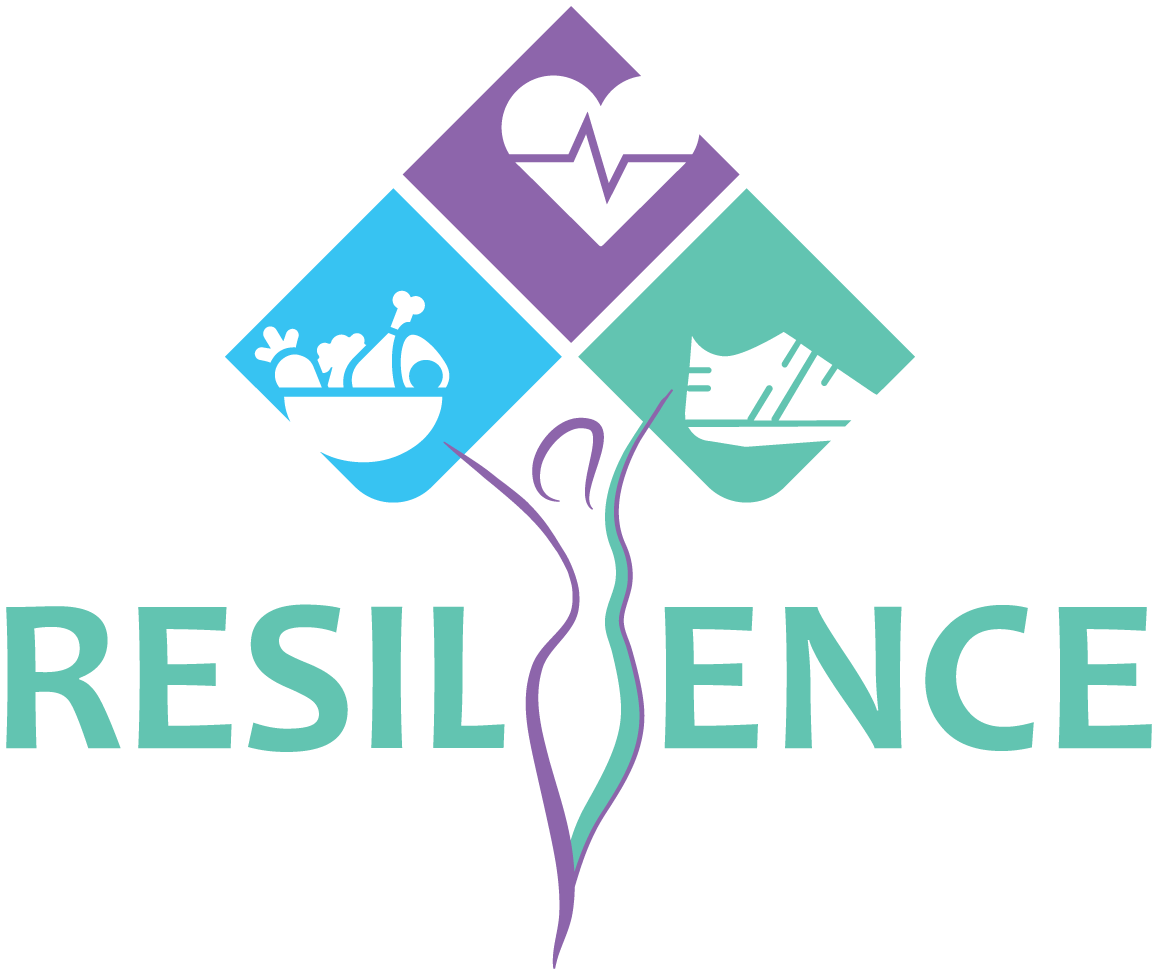Healthy Life Trajectories Initiative (HeLTI)
To evaluate whether technology-based care can improve the health of families before pregnancy (preconception), during pregnancy and into early childhood and promote child development while preventing obesity and chronic diseases. Anthropometic measures will be collected in partnership with the HNRU.
Email HeLTICanada@smh.ca or call 1-877-344-0464
www.helticanada.com


Prebiotics and diet to reduce “leaky” gut in first degree relatives of people with Crohn’s disease
We are seeking healthy first-degree relatives of people with Crohn’s disease from 15 to 50 years of age to take a dietary supplement and follow a diet for six weeks to see if a dietary fiber supplement and an anti-inflammatory diet can reduce the risk factors for developing Crohn’s disease.
Participants will receive $50 at the initial visit and $50 at the end of study.
Simona and Reem at ucprebio@ualberta.ca or 780-492-0019.
Fish Oil for Heart Health Study for Youth
Eligibility: 14-20 yrs old, with obesity
PI: Dr. Spencer Proctor
Contact: Niusha Taheri, cldlipid@ualberta.ca or 780 248-1909.
For more info visit: https://erase.ualberta.ca/2024/10/21/fish-oil-for-heart-health-study-participants-needed/

Hearth Health in Women With & Without PCOS
Eligibility: Women 20-45 years old, with or without PCOS
PI: Dr. Donna Vine
Contact: PCOS Together Team, pcostogether@ualberta.ca
For more info visit:https://pcos.together.ualberta.ca/2025/03/21/healthy-weight-volunteers-needed/

Title: PCOS-Fish oil and Metformin (PCOS-FM) Therapy
Eligibility: 25-45 Years Old, Diagnosis of PCOS, Overweight
PI: Dr. Donna Vine
Contact: PCOS Together Team, pcostogether@ualberta.ca
For more info visit:https://pcos.together.ualberta.ca/current-studies/fish-oil-metformin-therapy/

Development of a home-based video program to suppoRt muscle strenNGth and function (S.T.R.O.N.G TRIAL)
This is a home based 12 week resistance exercise intervention study to treat sarcopenia in children (5-18 years) after liver and multi-visceral transplantation. We are also recruiting healthy children between 5-18 years.
Contact: Amber Hager (ahager@ualberta.ca) , Yuxin Guo (guo12@ualberta.ca) or Dr Diana Mager (mager@ualberta.ca) at 780-492-7687 for more information.
The impact of a higher protein diet on metabolism and gut microbiota: a 12-week study in individuals with excessive body weight (PREMIUM)
The aim of this study is to investigate the impact of a diet higher in protein on the amount of fat and muscle in the body, the amount of calories burned and type of fuel (carbohydrate, protein or fat) used for energy, on the blood sugar and the gut microbes.
Contact Information: Julia Montenegro ( jmontene@ualberta.ca)
Website: https://premium.ualberta.ca/
https://ualberta.calogin.redcapcloud.com/survey.jsp?code=SCU8n309CfFqJCB1

RESET for Remission in Type 2 Diabetes
The purpose of this study is to examine whether combining a low energy diet with structured exercise training leads to remission of type 2 diabetes in younger adults.
Contact Information: Jordan Rees (rees@ualberta.ca)
Metabolic and inflammatory outcomes of the ketogenic diet comparing saturated and unsaturated fat sources (KETO-IM Study)
The goal of our research is to compare consuming a KETO based on either canola oil or saturated fat to a lower fat diet typically recommended for diabetes for 6 months on blood sugar, factors related to the immune system, and other outcomes.
Contact Information: Paulina Blanco, 780-492-9506; keto.im@ualberta.ca
Development of a Gluten free food guide for Canadians, Child and Youth
Develop and test a gluten free food guide for Canadian Children and youth with Celiac Disease.
Contact Information: Dr. Diana Mager, PhD, RD (780-492-7687; mager@ualberta.ca)
RESILIENCE: ImpRoving hEalth behaviourS for LIfe after ENdometrial CancEr trial.
The RESILIENCE study aims to explore whether a digital wellness platform with guidance from healthcare professionals could help people with endometrial cancer live a healthier life and lower the risk of heart problems.
Contact information: resilience.trial@ualberta.ca
Website: https://sites.google.com/ualberta.ca/resilience-trial

Digital Intervention for behavior change and Chronic disease prevention (DIRECTION Study)
The goal of the DIRECTION study is to investigate if a wellness intervention delivered remotely for 4 months is useful for health promotion. Participants will be asked to interact daily with a web-based wellness platform to change health behaviors and reduce the risk of developing chronic diseases. This platform provides tools for mental well-being, physical activity and nutrition. All participants will receive a Fitbit activity tracker and a smart scale to collect health and movement data. The participants can keep the devices if they complete the study.
Check your eligibility on the link: https://redcap.link/DIRECTION
Contact: direction.study@ualberta.ca

Development of an innovative home-based strategy for frailty prevention in adults with diabetes and chronic kidney disease (FANTASTIC)
The goal of the FANTASTIC study is to develop an in-home program that uses video technology, physical activity, and nutrition literacy exercises to help prevent frailty and frailty progression in adults with diabetes and chronic kidney disease.
Contact Information: Deanna Ketsa BSc (dketsa@ualberta.ca) or Dr. Diana Mager, PhD, RD (780-492-7687)
Innovative approaches to the lack of evidence-based dietary protein requirements for patients with cancer (Protein Needs Study)

An Observational Study of Cardiometabolic Health Changes Over Time in Women
The purpose of this study is to evaluate the natural evolution of ectopic fat and cardiometabolic health profile in women of various ages and BMI’s over a two year period.
We are looking for female participants aged 30-75.
Contact Information: Devyn Walesiak dwalesia@ualberta.ca
Energy Requirements for Patients with Cancer

Impact of Metabolic health Patterns And breast Cancer over Time in Women (IMPACT-Women)
The purpose of this study is to evaluate the effect of supported time-restricted eating (TRE), healthy eating practices, and reduced sedentary time versus usual cancer and nutrition care in breast cancer patients receiving chemotherapy treatment on ectopic fat, cardiometabolic profile, and chemotherapy outcomes.
We are looking for female participants who have recently been diagnosed with early-stage (stage I, II, III) breast cancer.
Contact Information: Rachel Sherrington rsherrin@ualberta.ca
Dietary Fructose as a mediator to altered Liver energy metabolism and oxidative stress in Youth with non-alcoholic fatty liver disease: HELP THEM FLY
The goal of this study is to develop effective dietary treatments for children and adolescents with non-alcoholic fatty liver disease.
Contact Information: Dr. Diana Mager, PhD, RD (780-492-7687) or mager@ualberta.ca
The effect of the home food environment and food purchasing patterns on food intake and glycemic control in youth with Celiac Disease and Type 1 Diabetes consuming the gluten free diet
The purpose of this study is to better understand if the foods that families buy and have in their homes affects what teenagers (13-18 years) eat and their blood sugar levels.
Contact Information: Dr. Diana Mager PhD RD (780-492-7687) or mager@ualberta.ca
Website: https://conquer-studies.weebly.com

Serial evaluations of Muscle mass, motor development And growth to determine sarcopenia expression and progression in young infants and children with end-stage liveR disease before and after liver Transplantation-SMART Study.
This is a 12-month longitudinal study evaluating changes in body composition and gross motor skills development in infants and children 2 months-5 years of age with chronic liver disease and/or end-stage liver disease before and after liver transplantation. We are also recruiting healthy children between 2 months and 5 years of age.
Contacts: Megan Wang (yiqi8@ualberta.ca), Amber Hager (ahager@ualberta.ca) and Dr Diana Mager (mager@ualberta.ca) at 780-492-7687.
A model of metabolic load-capacity in pediatric obesity: implications for metabolic health and interactions with gut microbiota (Peds LC)
This study will investigate whether children with obesity who have or not metabolic issues (i.e. high blood lipid or sugar levels or high blood pressure) have different body composition and microbes in their gut.
Contact Information: Reena Duke (780-492-4182; rduke@ualberta.ca).

Vitamin D Supplementation and Bone Health in Adults with Diabetic Nephropathy: A follow up study (Vitamin D)
This is a longitudinal study looking at the long-term differences in bone health, body composition, and vitamin D status from taking a daily vs. monthly vitamin D supplement in individuals with diabetic nephropathy.
Contact Information: Deanna Ketsa (dketsa@ualberta.ca) or Dr. Diana Mager, PhD, RD (780-492-7687; mager@ualberta.ca)
